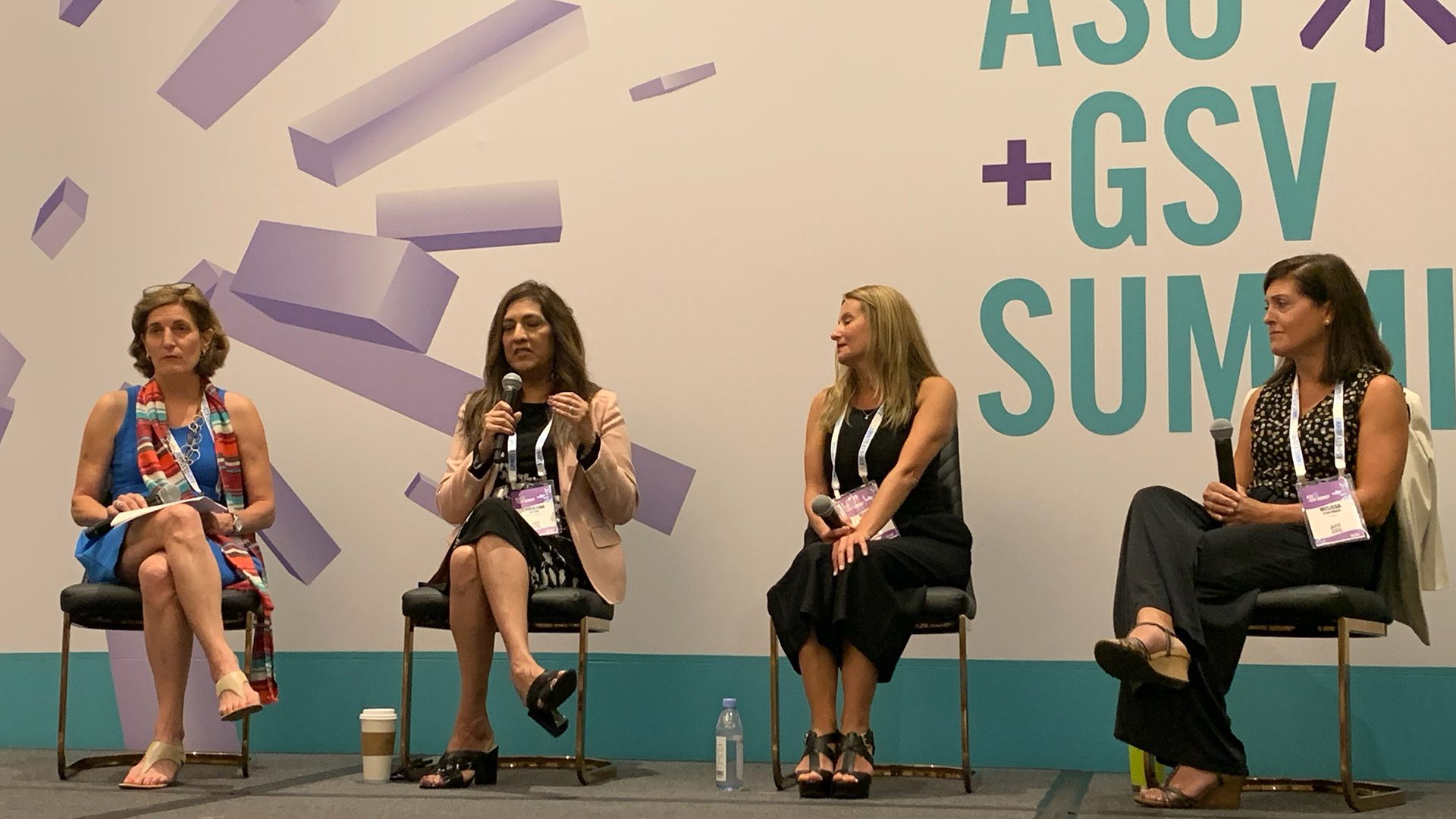We are hearing “back to school” all around us, but national education leaders recently sat down to talk about what that actually looks like in regards to supporting school communities. BARR’s Director of Strategic Initiatives/NSI Project Lead Christina Ritter recently spoke on the “Finding Your Place K-12 Social Emotional Learning and New Normal” panel at the ASU + GSV Summit in San Diego, California to discuss the importance of equity and supporting educators, students and families this school year.
During the panel, Ritter was joined by Rethink Ed Senior Vice President and General Manager Diana Frezza and CASEL’s Vice President of Practice and Programs Melissa Schlinger. The panel was moderated by Tyton Partners’ Senior Advisor Andrea Mainelli.
Within the discussion, Ritter shared BARR’s (Building Assets, Reducing Risks) impact on more than 200 schools in 21 states and Washington D.C. BARR is a nationally recognized K-12 model that provides educators with a comprehensive approach to meeting the academic, social and emotional needs of each student. She shared how coaching is a key part of the BARR model that allows educators and the BARR team to work together on a consistent basis to strategize ways to best support schools. Relationships were central to the conversation, as it was mentioned as the key ingredient to sustainability when ensuring student success.
Ritter shared that Professional Learning Communities were an imperative component in keeping the BARR network connected across the country. This past year, suburban, urban and rural school communities were able to lean on each other, share ideas and lift one another up through these monthly meetings.
“Think about this collective intelligence coming together and talking to others about what’s working and not working,” Ritter said.
She also explained how social emotional curriculum helped students stay in relationship with other students and their teachers, whether they were learning in an in-person or distance learning format. Knowing the pandemic has changed the education landscape, the panelists discussed what this “new normal” looks like for schools.
In order to see students as a whole child, Ritter discussed that there must be time built into schedules for educators to strengthen their relationships with one another and have conversations about data. Quantitative and qualitative data are critical components to understanding students and making sure they have the tools to model healthy relationships, work towards goals and approach challenges in a positive way. As the nation’s leading evidence-based school improvement model, Ritter explained how important it is to lean on BARR’s continuous improvement and research to lead to academic outcomes.
“You can’t have academics without SEL (social-emotional learning). They go hand-in-hand and they feed into each other,” Ritter said. “That dynamic is very important and it’s not static, it’s continuously evolving.”
While schools head back to school this year, it will be more critical than ever that educators have the tools they need to support students where they are at socially, emotionally and academically to help them achieve their future goals.
